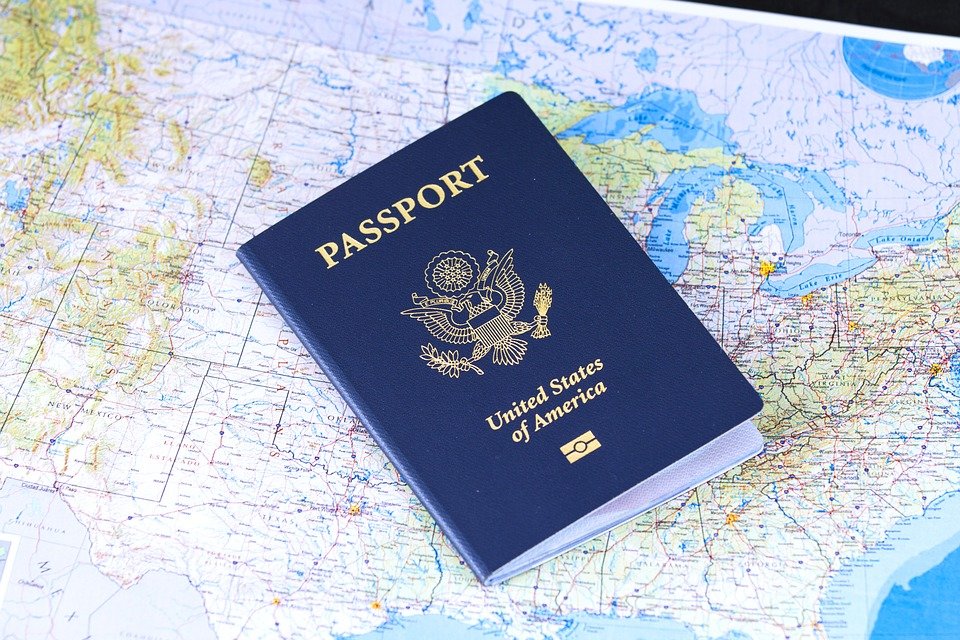Preparing for Study Abroad: 9 Things You Need to Know
You're about to embark on the adventure of a lifetime but there are a few things you need to do before you catch your flight. We're here to help you prepare for your study abroad journey with our simple, informative guide.
TLDR 👀
- Students first need to apply for a passport prior to studying abroad.
- Prospective study abroad students should get a clean bill of health from a doctor and also secure health insurance.
- Cheap plane tickets can be found through websites like Skyscanner and Student Universe.
- When packing, less is more!
- Researching the host country's customs and culture can help students get to know their new home before arrival and may lessen culture shock.

You've found a great study abroad program, been accepted, and are now getting excited to start your study abroad adventure. Congratulations! Now it's just a matter of preparing yourself for the big trip. What should you pack for study abroad? Do you need travel insurance? How should you handle money and phones while abroad?
It can take anywhere from 6 to 12 months to get a passport, so make sure you start on this one well in advance.
Not to worry, everyone here on the Go Overseas team has thought about -- and found answers for -- these questions before. Read on for our best tips on how to prepare for studying abroad.
1. Apply for a Passport and Visa

You must have a valid passport to travel and study abroad. If you already have one, be sure to double check that it's not expired and that it won't expire within 6 months of your intended return to the US. Also, make sure that you have blank pages in your passport if you've traveled abroad before.
For passport newbies, U.S. citizens can directly apply for a new passport at selected post offices, federal or state courts of records, or at a State Department passport agency. It can take anywhere from 6 to 12 months to get a passport, so make sure you start on this one well in advance. Yes, you can expedite the process, but it'll cost extra. It's better just to be timely.
If this is your first passport, when you go to apply for it, don't forget to bring:
- Your birth certificate
- 2 recent passport-sized photos (these can be taken at local Walgreens, Kinkos, or most other photo-printing places)
- Certified identification (like a driver's license)
- Your passport application
- Payment
If you're renewing an old passport, you can leave behind your birth certificate in exchange for your expired passport.
In addition to a passport, you may need a visa to study abroad. Different countries have different visa requirements so look up your intended study abroad destination's regulations on the State Department's website. You can also contact the nearest embassy or consulate of the country you plan on going to in order to receive information about visa requirements and any special travel restrictions. Similar to passports, visa applications can take several months to process so don't delay in applying!
If your study abroad trip is during the summer, or under three-months long, you may not need a visa. Most countries will allow students to enter the country for up to 90 days on a tourist visa. However, this isn't true of all countries so definitely make sure you check and double check what kind of visa (if any) you'll need.
2. Visit a Travel Doctor
Plan on visiting your doctor and getting a physical before you leave to ensure you are in good health. Bring along a copy of your medical records in case of an emergency overseas.
Furthermore, it's important to know the host country’s immunization requirements and become immunized before your departure. Most programs will advise you on the types of vaccinations you'll need (if any) while abroad, but for the latest up-to-date disease information you may also want to contact the Center for Disease Control and Prevention.
Ticket fares can vary greatly depending on when you want to fly and where you are buying your ticket from.
Also, if you have a critical medical condition that requires prescription drugs you may want to bring enough with you to last your entire time abroad (if possible). Prescriptions drugs must be carried in correctly labeled containers to prevent being mistaken for illegal drugs. It's also wise to bring a prescription or note signed by your doctor.
3. Get Travel Insurance
It's important to have a reliable health and accident insurance policy while you are studying abroad, as well as coverage for emergency evacuation and repatriation (but let's hope it never comes to that!).
Your health insurance provider might cover you abroad (not all do, though), but even if it does, there are a couple of things that travel insurance will cover that health insurance won't. For example:
- Coverage if your flight is delayed / canceled
- Lost luggage
- Stolen personal belongings
- Evacuation in the case of a health emergency or natural disaster
You can get travel insurance through providers like WorldNomads.
If you just want to get health insurance for your time abroad, the Council on International Educational Exchange offers inexpensive insurance for students, teachers and youth under 25 in the United States. Other options include Student Travel Guard and GeoBlue.
4. Buy a Plane Ticket

These days, finding cheap airplane tickets has turned into an art of timing and luck. Fares can vary greatly depending on when you want to fly and where you are buying your ticket from. A good place to start is Skyscanner, which will quickly show you the cheapest flights available for your preferred dates.
Additionally, student travel agencies, such as Student Universe can provide the oft-most flexible and inexpensive tickets for students traveling abroad. They also help students find discounts for their tickets -- did you know you could get a cheaper flight just for being under 26?? You do now.
Before buying a bargain fare though, find out just how flexible flight date changes are. After all, you don't want to be forced to buy a whole new ticket if you decide to stay overseas a little longer! Fortunately, most airlines will let you change your ticket for $100 + the difference in price.
We also recommend not arriving more than a few days prior to your intended program start date. While the few extra days may allow for a jump-start in adjusting to the new environment or jet-lag recovery, arriving early may create problems in immigration.
5. Research Your Destination's Local Customs, Culture, and People
Take some time to better familiarize yourself with your study abroad country. By knowing even briefly your soon-to-be home's culture, history, geography, economy, government -- everything! Your study abroad experience will be enriched and your time spent more meaningful.
Talk to others who have been there and seek opportunities to watch movies and read more about the country and its culture. Additionally, it would help to avoid those offensive foreigner-follies (such as pointing with your thumb or not slurping your noodles at dinner!)
Even knowing the most basic of phrases in the local language can make a world of difference in overcoming those first few days of adjustment.
The Department of State has quick notes on over 150 countries; these serve as a great starting point for up-to-date information for your intended travels (that is, if you can break away from Wikipedia for 5 seconds!)
6. Refresh Your Language Skills
Even knowing the most basic of phrases in the local language can make a world of difference in overcoming those first few days of adjustment. Enroll in classes, ask fluent friends for help, or download apps, like Duolingo, and podcasts to use on your daily commute to school -- every little bit helps!
7. Money

There are a few steps to take in regards to finances before heading off:
Set up an online account
If you don't already have an online bank account, definitely set it up. It's the easiest way to manage your money while abroad. Most international travelers use their ATM/debit or credit cards to get cash in the local currency.
Tell your bank and credit card companies you'll be abroad
You'll need to notify your current bank and credit card companie(s) about your plans to study abroad. Otherwise, you risk getting locked out of your account while abroad (they might flag it as fraud).
Pack some extra cash
For those first few days, I recommend carrying between the equivalence of $100-$200 in the currency of your host country. Those days may be busy, but finding an ATM or bank should be relatively easy. If you are unable to obtain the currency at home, the airport is a great option to withdraw cash at an ATM right as you arrive.
8. Start Packing!
Two words: pack light! Be sure to double check with your airline to learn their luggage allowances to avoid fees. Personally, I'd suggest packing no more than:
- One checked bag.
- One daybag (e.g. a backpack) as your carry on.
- One personal item, like a purse.
Seriously, if you check two bags, you'll only be weighing yourself down (literally) and making that end-of-study-abroad trip unnecessarily cumbersome. Personally, I love traveling with my 46-liter Osprey bag and a tote. It's been my go-to luggage for everything from 2-month to 2-year long trips.
Some other useful packing tips include:
- Bring travel sized toiletries to get through your first two weeks and stock up once you arrive.
- Plan to buy a cheap towel / sheets on arrival instead of wasting space on that.
- Stick to 3 pairs of shoes -- 4 if you must.
- Bring power adapters for your electronics.
- Ladies, leave the blowdryer / flat iron at home. The voltage differences in most countries (including most of Europe) will fry them. Get a cheap one in country and leave your nice stuff at home.
- Bring a few momentos of home to help with homesickness.
- If you wear glasses or contact lenses, be sure bring extra pairs with you.
Ask your study abroad program for a suggested packing list, and keep in mind that many of the items you may want to bring will be available overseas. Note the weather in the country you are studying in, as packing your winter coat for January south of the equator might just be silly.
Don't forget to bring photos, recipes, and other mementos from home to help during those homesick moments. Consider bringing a journal or notebook to reflect and write about your study abroad experience. Small souvenirs from your life back home also make great gifts for new friends or host families.
9. Cell Phones and Staying in Touch with Home
How else will you regale everyone back home with wonderful stories about the amazing time you are having?! Most students rely on two options for communicating with friends and family: cell phone or laptop.
As for cell phones, just don't get an international plan. Ever. Especially since you're going to be abroad for more than a week, these plans are unsustainable and way overpriced. Instead, get a local SIM card (which you can get on arrival in the airport) and a pay-as-you-go plan (which is the norm in most non-U.S. countries). This is also great since it'll give you a local number -- perfect for handing to new friends!
While goodbyes can be tough, they're a necessary part of this journey. And just think of all the excitement you have yet to come! Expect the unexpected!
If you bought your cell phone in or after 2015, you might not have to worry about unlocking it for international use. A law was recently passed requiring phones to be sold unlocked. And, if your phone isn't unlocked, you can call your cell phone carrier and ask them to unlock it for international usage.
Typically, texting the folks back home on a local phone isn't too pricey, but phone calls will be. So, if you want to sit down and talk, your best bet is to connect over WhatsApp or Skype. Tip: set mom and dad up with an account before you go.
Prepare Yourself Mentally
While goodbye's can be tough, they're a necessary part of this journey. And just think of all the excitement you have yet to come! Expect the unexpected! While studying abroad you will definitely encounter people with different concepts of time and personal space. Be ready to learn and observe these differences without being judgmental. It will be these very same differences that will undoubtedly enrich your understanding of your own culture.
The locals you meet while abroad will often be very curious about life in your home country. Typically, you will be asked about your country's foreign policies of which you are sometimes expected to be very knowledgeable. Get in the habit of reading newspapers and news magazines long before you leave so you'll be informed on current affairs in your home country as well as abroad. You may also want to educate your friends and family about where you'll be going and what it is you'll be doing. Having a strong support system will help you get through the challenges of living in an unfamiliar environment far from home.
Even though you can never expect to be fully prepared upon arrival, we hope these tips will help you hit the ground running!
